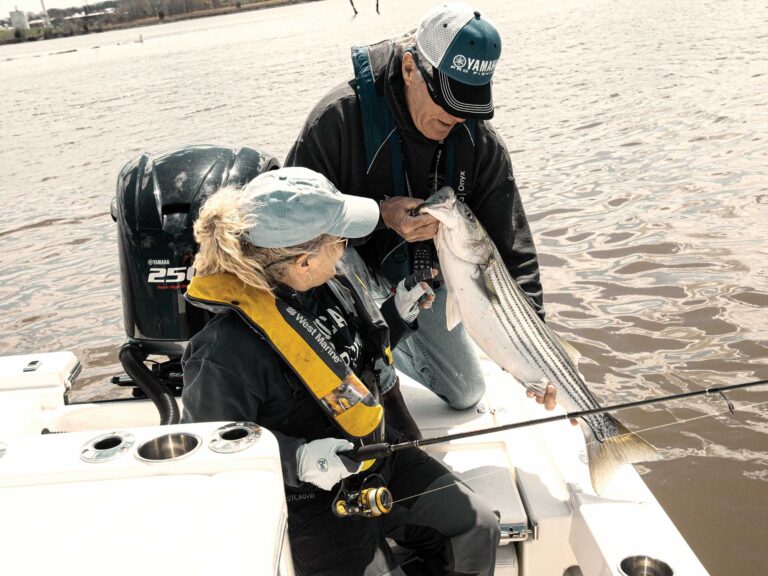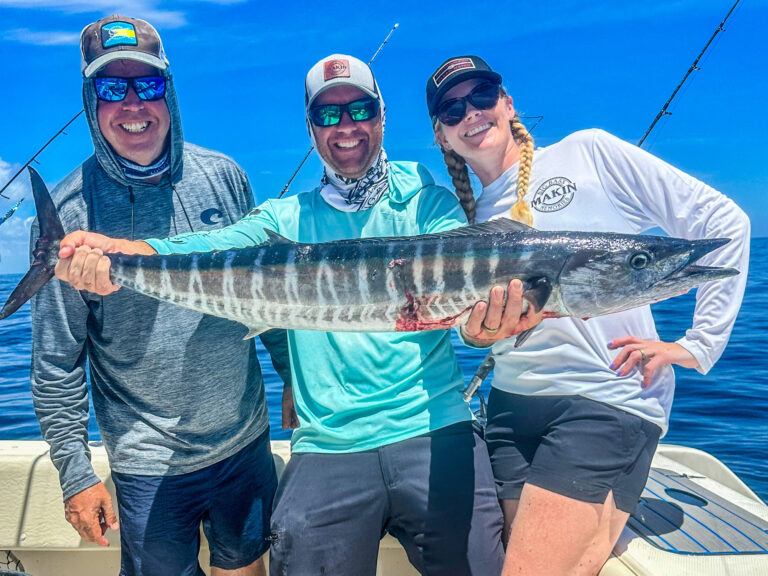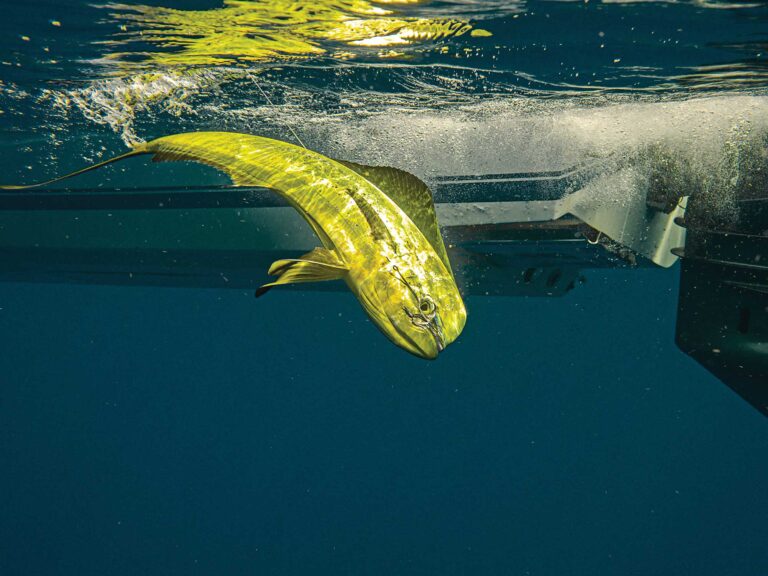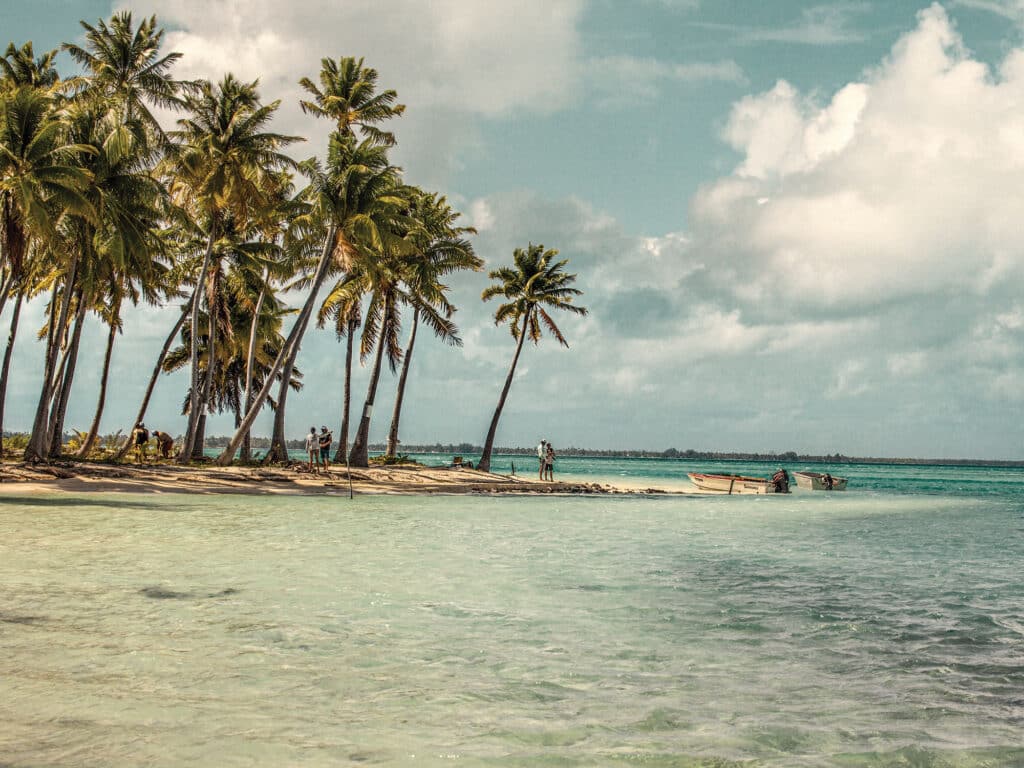
I got coral cuts on my feet while photographing an exploratory trip to a remote atoll in the South Pacific. A visiting nurse happened to be on the island at the time. Through a translator he told me I needed to get on antibiotics immediately and stay out of the water—not a promising diagnosis when I’m on a job that involves wading the flats all day, every day. I took the meds, cleaned the wounds each night, and completed the shoot to the delight of the client. The only lasting wounds? I lost both big toenails (they came back) and gained a few new scars on my feet. I also had a memorable barefoot walk through LAX because my feet were so swollen by that point that they wouldn’t fit in my flip-flops.
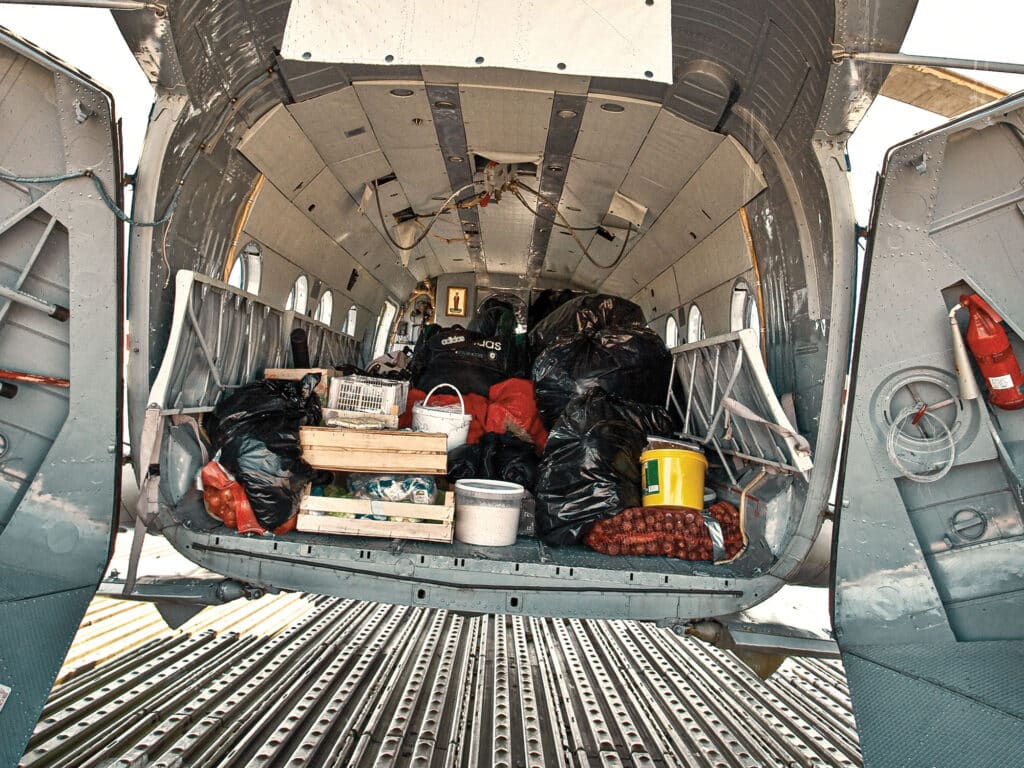
The Rough Side of Roughing It
As with many things in life, the reality of travel is far less glamorous than the idea. To get the best images and stories, I’m often working in places that don’t exactly cater to the resort type. Imagine a lot of sleeping in group tents in locations with no bathroom facilities, eating whatever’s handy when you have the time, and finding a way to laugh when things go wrong.
Those moments are often the most memorable. Humans love adventure stories.
There’s good reason for curiosity about the uncomfortable and interest in what lies on the other end of an airplane ride. Travel tales are compelling on their own, but when you add an element of the unexpected—when something goes wrong—our pulse ticks up a notch. Stories become far more interesting when everything doesn’t go according to plan.
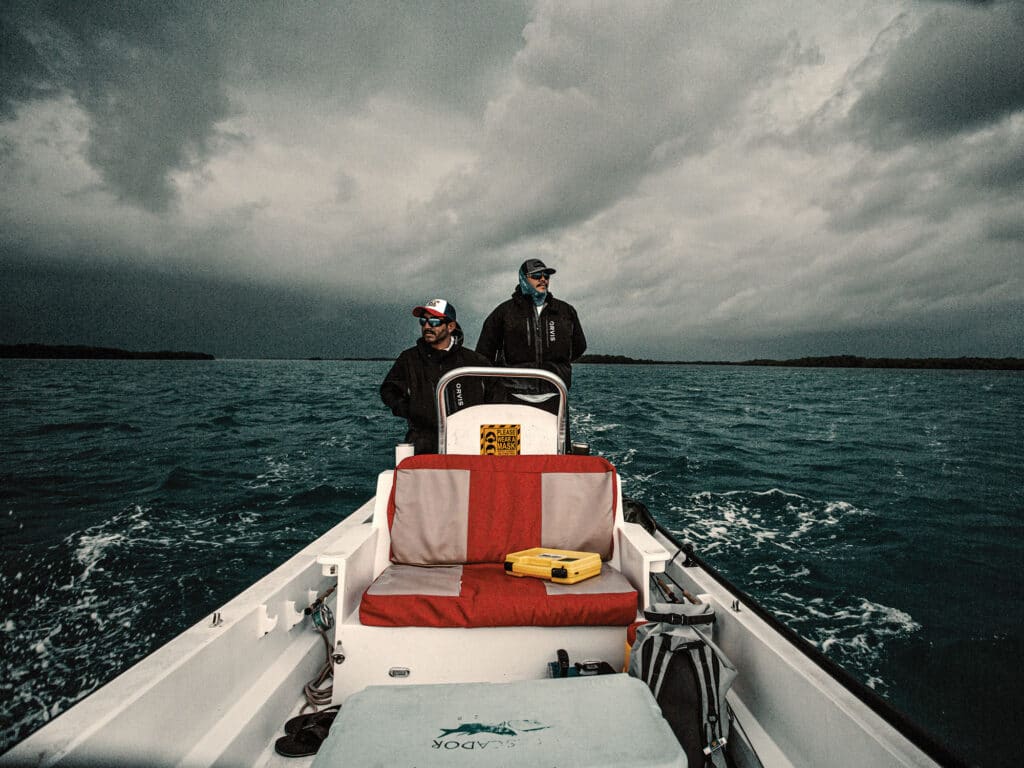
Trouble in Paradise
Once, a videographer friend and I were on a job in Belize. We quickly discovered he was badly allergic to sand fly bites, his feet and ankles quickly looking like a bad case of chicken pox. He marched on like a trooper, going through a couple of tubes of cortisone cream and icing with cold Belikins while in the boat. (Additional Belikins were consumed for medicinal purposes.)
On one memorable shoot in the Peruvian Amazon, I spent a day sweating under mosquito netting, sick with a high fever in the middle of the jungle. So, this is how the old jungle explorers felt when they were sick, I thought. I recovered within a few days, but lost 12 pounds during the trip. My recovery food? Tiny little bananas we plucked from trees as we traveled.
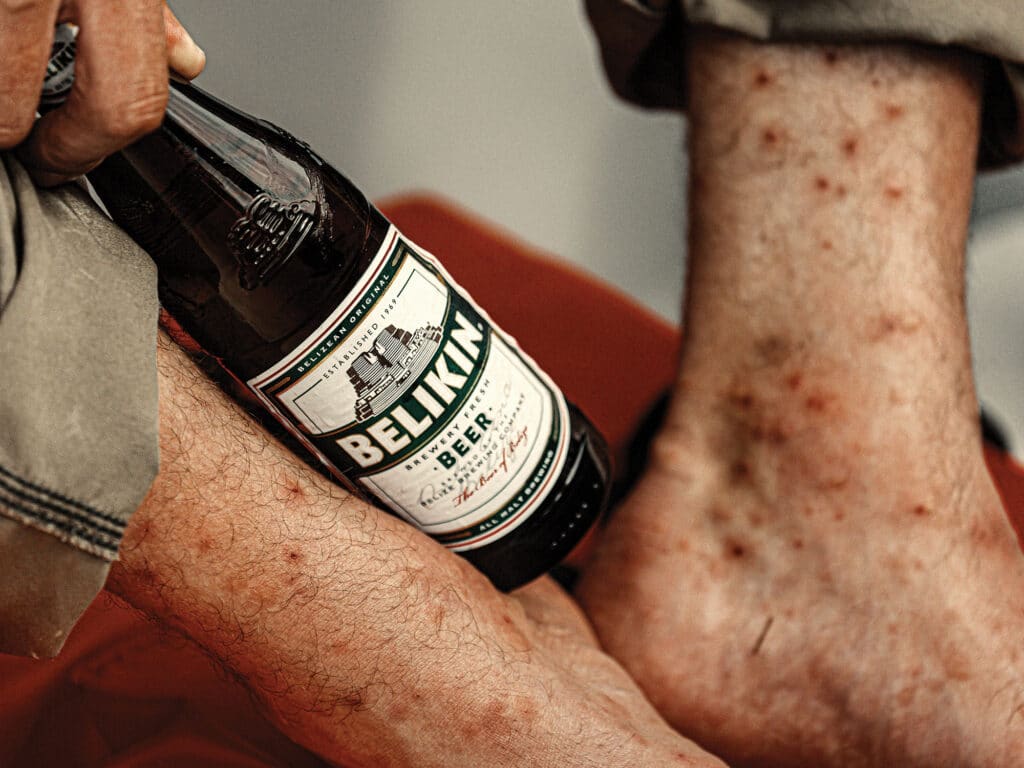
Another medical malady was food poisoning on a skiff on the flats in Cuba. There was no land around, and the guide didn’t want me in the water, so I clambered through the mangroves like a monkey, resigned to let nature run its course. I spent a very sick hour in the companionship of mosquitoes, spiders and one very curious iguana.
Russia brought its own set of challenges. My season working in a lodge started out with a riot in Sheremetyevo International Airport in Moscow—quite the introduction to Russia. The rest of the season was spent fighting mosquitoes thick enough that we walked around in waders and wading jackets simply for the Gore-Tex protection.
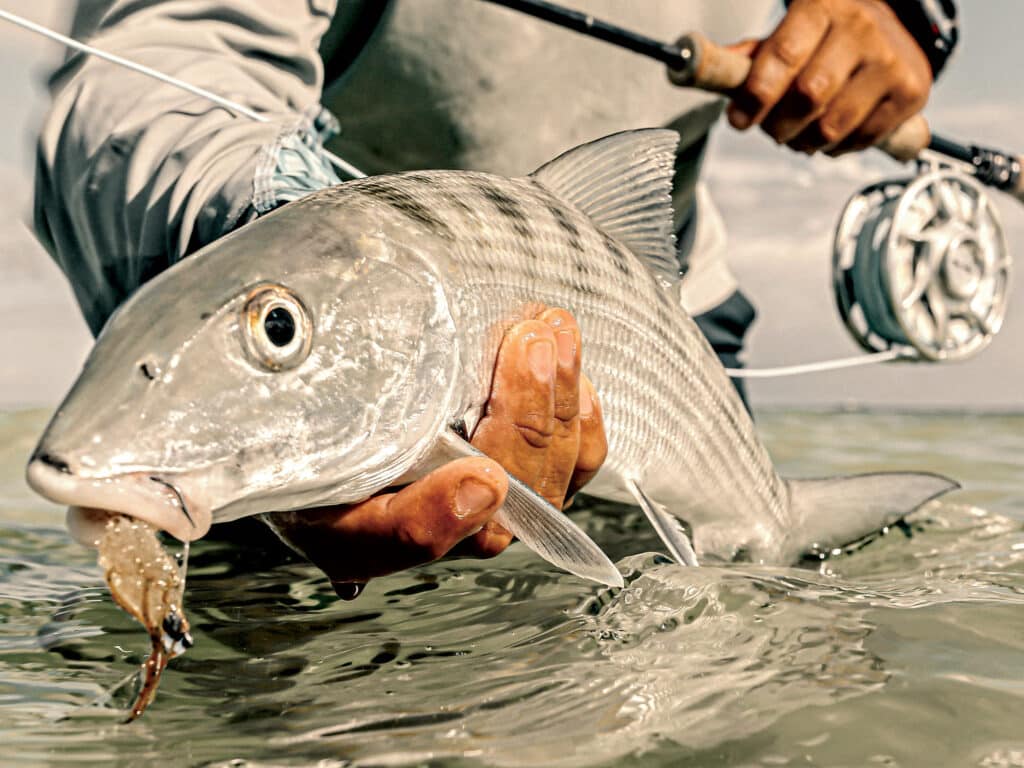
Spend any time in salt water, and odds are you’ll have a shark story or two. A shoot in Samoa brought unique challenges: I was bumped by a tiger shark while in the water shooting back toward the boat, an incident that resulted in a shark-tooth scratch on my underwater housing and a healthy wariness for blue water. Samoa also brought my first time being seasick, and I weathered a large offshore squall alternately puking over the side and shooting images in the rain. As a sort of grand finale, I also caught dengue and spent $60 on every medication possible in Auckland Airport on the way home. I still don’t remember much of those flights.
Let’s not forget the many nights spent on airport floors. (Pro tip: Sleep on top of the heating vents, and nestle your baggage between you and the wall, then loop an arm or leg through any bag straps.) There’s also the questionable food over the years. As long as it’s well-cooked, odds are it’s safe to eat. But sometimes it’s best not to know what mystery meat you’re downing. Pack along some stomach meds and electrolyte packets for the times when travel food inevitably gets the best of you.
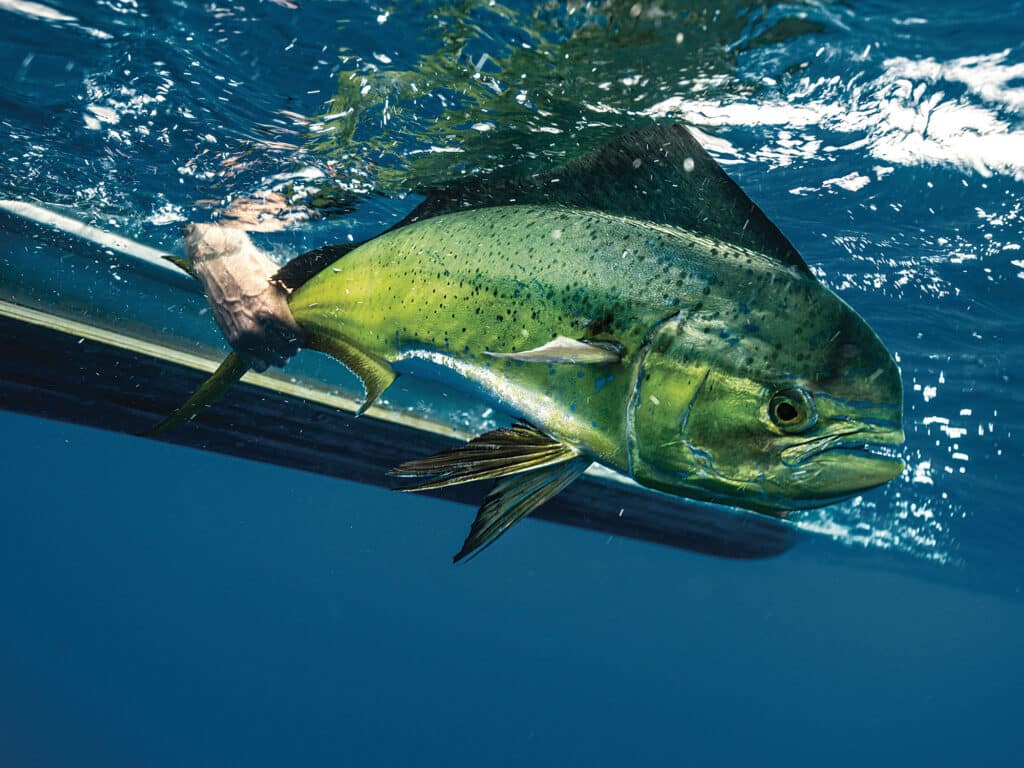
All-Contingency Plan
Photography is funny; you’re only capturing a single moment. Usually, it’s the “pretty” moments. Typically, readers don’t see the gritty side, the things that go on behind the scenes. But with the right attitude and a solid backup plan or two, those uncomfortable moments can be the most memorable.
And if you’re doing any kind of travel outside of a curated, luxury resort experience, you’re probably going to experience some degree of divergence from the original plan. In a 15-year career spent traveling to random corners of the world with a camera and fly rod in hand, I’ve learned that every good plan needs backups. The best thing you can do when things go off-kilter is to take a deep breath and bring one of your backup plans into play. Because for every 8-pound bonefish or gorgeous sunset overlooking the mangroves, there’s a night spent on an airport floor or a fevered run with a tropical illness and no medical clinic within reach.
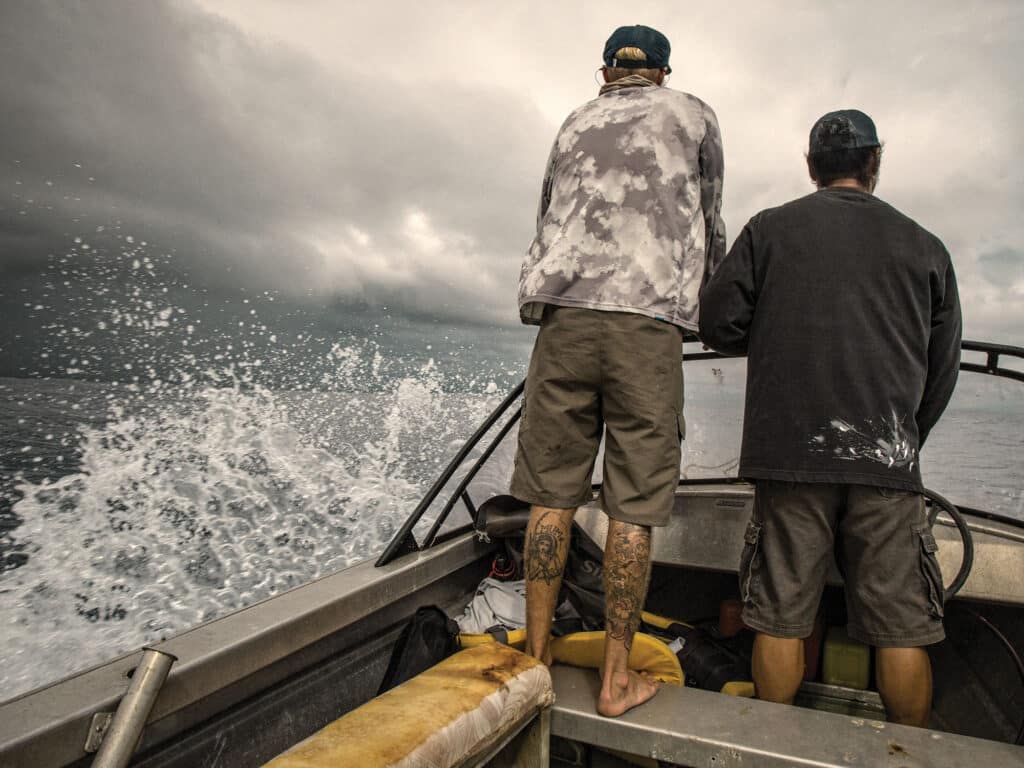
Travel can be hard—it is hard. So, how do you get through the tough parts? First off, manage yourself. Do what you can to stay healthy along the way; things seem far, far worse when you’re sick, hungover or just plain unwell. Pack electrolytes—I use them daily when traveling. Eat reasonably well, and don’t over-imbibe (too often). Stay hydrated. Catnap when you can because exhaustion can make the world seem like a gloomy place.
Pack along a solid medical kit. Mine has changed over the years but always included wound care basics, medicines, a tourniquet and a suture kit. Always have it accessible and know how to administer basic first aid, either on yourself or others.
Read Next: Tips for the Traveling Fisherman
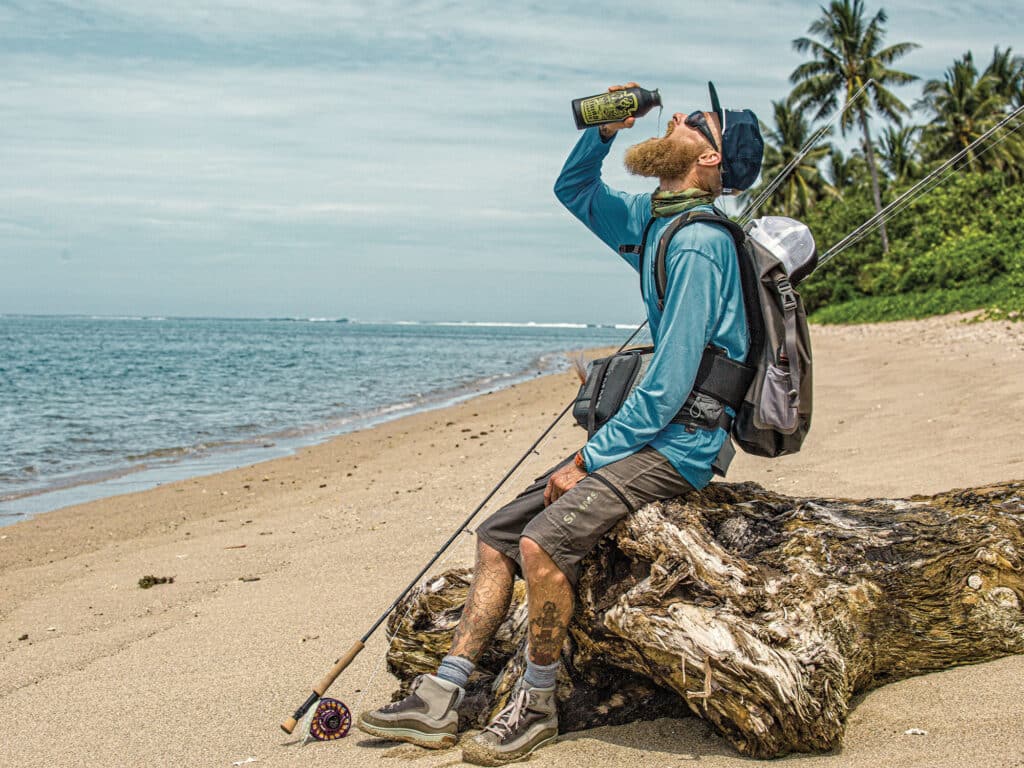
Plan thoroughly, with the clear understanding that things can and will change. Weather. Flights. In-country politics. The customs agent who won’t let your fly boxes through. The world changes rapidly, and while a solid Plan A is good, ensure you have plans B, C and D standing by. Be willing to roll with the punches. Try to remember that it’ll make for a good story afterward. Step back, assess the situation, suck in a deep breath, and realize that this too will pass. Eventually.
Why should we travel if there’s so much that can—and does—go wrong? My theory has always been we can’t know our place in the world until we see more of it. We pick up something from each new culture, be it a new way to prepare coffee, a creative curse in a new language, or a new strategy for targeting picky bonefish on skinny flats.
Travel is rarely easy, and it’s certainly gotten more complicated over the past few years. But it’s always worth it.





